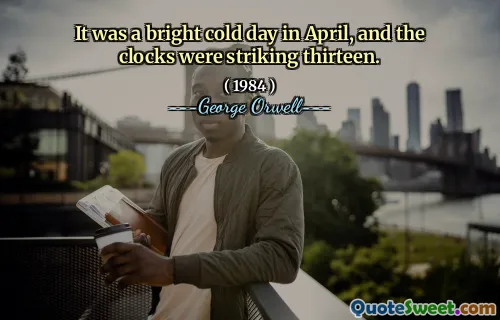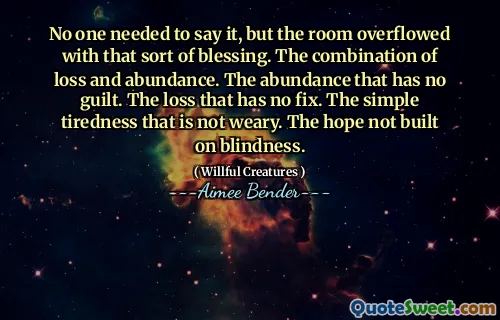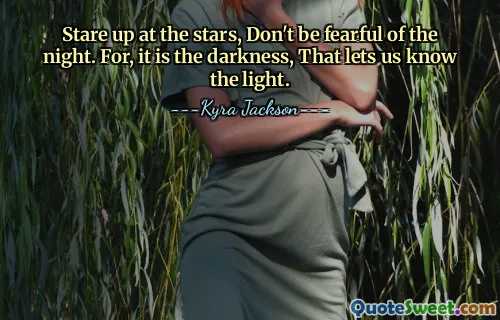
"She's beautiful,' he murmured.'She's a metre across the hips, easily,' said Julia.'That is her style of beauty,' said Winston."
This brief exchange between Winston and Julia in George Orwell's 1984 subtly exposes the complexity and subjectivity of beauty within the oppressive world they inhabit. While Winston's murmured compliment highlights an emotional, almost tender realization of Julia's beauty, Julia's practical observation about her physical dimensions contrasts with the innate and individualized appreciation that Winston expresses. The phrase "That is her style of beauty" suggests that beauty transcends conventional norms or measurements and is deeply personal and distinctive.
In the context of the dystopian society in 1984, where much of human experience and individuality is suppressed or manipulated, this recognition of personal beauty carries a quieter, perhaps rebellious defiance. Beauty here is not about political compliance or Party dictums; it's a humanizing detail that anchors Winston's affection beyond ideological constructs. The mention of exact physical measurements alongside a more poetic acknowledgment reflects the tension between rigid societal control and genuine human connection.
Moreover, their interaction emphasizes that beauty is multifaceted — it isn't confined to abstract ideals but includes real, tangible human features that contribute to a person's identity. Julia and Winston's dialogue subtly affirms the value of authentic human experiences amid pervasive dehumanization. In a world where every aspect of life is scrutinized, commodified, or punished, the intimacy and subjectivity found in appreciating beauty become acts of individual resistance and acknowledgement of humanity.











